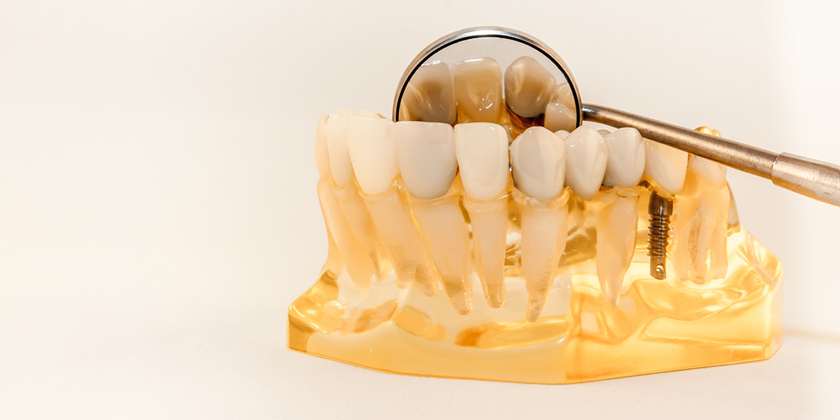Porcelain veneers fall under the category of cosmetic dentistry. They are one of today’s improved methods of regaining your smile. These veneers can refresh and revitalize your appearance because they hide unsightly crooked or cracked teeth. But, for those who suffer from gum disease, is it still possible to reap the benefits of porcelain veneers?
The short answer to that question would be: probably. But before you could receive dental crowns or porcelain veneers, your gum disease would have to be treated first.
Restorative and Cosmetic Dentistry
As long as you have a strong foundation, these dental options can restore smiles, your bite, and your teeth. Periodontitis, or advanced gum disease, can be responsible for tooth loss because of resulting bone deterioration. In severe cases, it can even leave you susceptible to undesirable health issues involving your overall system. Some of these include diabetes, stroke, or cardiovascular disease. If you suffer from gum disease, before you can be considered porcelain veneer eligible, there will have to be an effective plan in place that would lead to the reversal of your gum disease and its effects.
Some methods, procedures, or periodontal treatments can include the following:
- Bone grafts
- Gum surgery
- Scale and plane
When It’s Time for Those Veneers
Once your jaw bone, gums, and teeth are in good health, and your gum disease is under control, it is very possible that porcelain veneers could be in your future. How do porcelain veneers fix your teeth? Here are some of the things they can correct:
- Misshapen teeth
- Stained
- Gapped
- Chips
- Cracked
- Uneven
- Worn
- Crooked
Gum Disease and Gingivitis
Gingivitis is an inflammation of the gums caused by bacteria. Infected gums can bleed easily, appear swollen, and become read. Gum disease and gingivitis are related in that gingivitis is gum disease in a mild form. Because of this, regular teeth cleaning by your dental hygienist or dentist, as well as flossing and daily brushing, can typically reverse the effects of gingivitis.
Typical Causes of Gum Disease
Some people are simply prone to dental issues, whether due to genetics or less-than-perfect dental care. Gum disease, however, has some pretty distinct causes. If you know where gum disease comes from, hopefully, you can better understand how to avoid it altogether. The following are some causes of gum disease:
- Crooked teeth — The perfect breeding ground for gum disease is between teeth that have rotated, are crooked, or that overlap.
- Deficiencies in nutrition — Your gums may be open to infection if you’re not getting enough vitamin C in your diet, or if the foods you eat have a high sugar content.
- Prescription medications — Because some prescription medications leave your mouth dry by dampening the flow and production of saliva, it leads to the easy spread of bacteria.
- Hormonal shifts — Hormones can fall and rise during monthly menstrual cycles, pregnancy, etc. which increases your gums’ susceptibility to disease.
- Smoking — Your mouth is more susceptible to gum disease and other infections because the normal function of gum tissue cells is interfered with as a result of smoking.
- Plaque buildup — Plaque is a common cause of gum disease. Rinsing, flossing, and daily brushing help keep teeth free of plaque.
And alas, as mentioned before, heredity could play a part in your dental issues. If bacterial infections and gum disease run in the family, you may be at risk. Seeing a qualified and experienced dentist on a regular basis goes a long way toward establishing and maintaining good dental health.

